Colorectal Cancer
Risk Factors
- Age – Younger adults can develop, but the chances increase markedly after age 50
- Personal History – Adenomatous polyps (adenomas), Inflammatory bowel disease (IBD), which includes ulcerative colitis & Crohn’s disease, or have had colorectal cancer in the past, are more likely to develop new cancers in other areas of the colon and rectum.
- Family History – 1 in 5 people diagnosed have other family members who have been affected.
- Inherited Syndrome – About 5% to 10% of people who develop colorectal cancer have inherited gene defects (mutations)
- Racial & Ethnic Background – African Americans have the highest incidence & mortality rates.
- Diet – Diets high in red meats & processed meats.
- Type 2 Diabetes
- Physical Inactivity
- Obesity
- Smoking
- Heavy Alcohol Use – Limited to no more than 2 drinks a day for men and 1 drink a day for women.
Warning Signs & Symptoms
- A change in bowel habits, such as diarrhea, contstipation, or narrowing of the stool, that lasts for more than a few days.
- A feeling that you need to have a bowel movement that is not relieved by doing so.
- Rectal bleeding, dark stools, or blood in the stool (often, though, the stool will look normal)
- Cramping or abdominal (belly) pain
- Weakness & fatigue
- Unintended weight loss
Most of these symptoms are more often caused by conditions other than colorectal cancer, such as infection, hemorrhoids, or inflammitory bowel disease. Still, if you have any of these problems, it’s important to see your doctor right away so the cause can be found and treated, if needed.
Early Detection Saves Lives!
This information was provided by the American Cancer Society. © 2013 American Cancer Society, Inc. All rights reserved. The American Cancer Society is a qualified 501[c][3] tax-exempt organization. www.cancer.org
